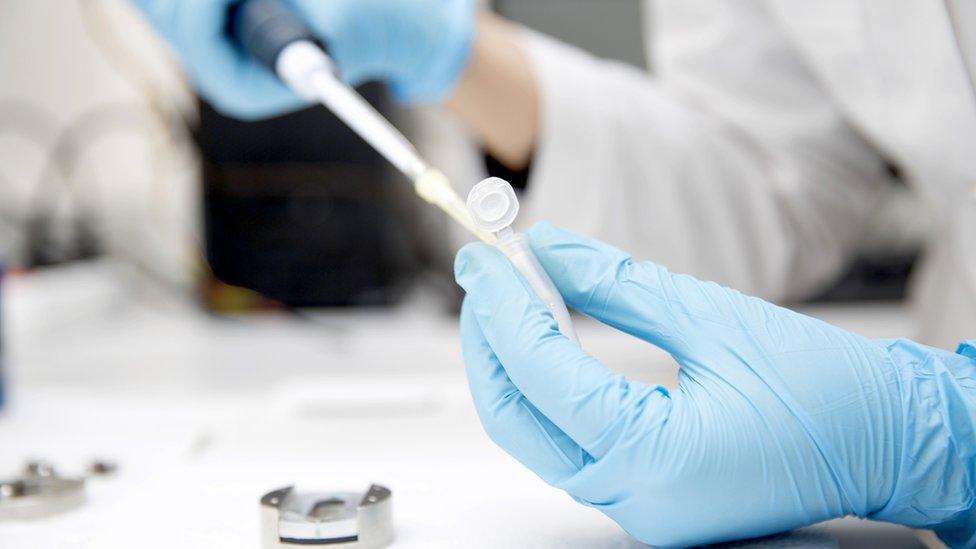Coronavirus test: What are the different types and what is available in the UK?
- Published
- comments

Testing people for coronavirus is a key part of the government's plan to tackle the pandemic.
Prime Minister Boris Johnson set a target of 200,000 tests a day for coronavirus in the UK by the end of May and while that is happening, it isn't happening every day,
Testing is discussed a lot when people talk about coronavirus and experts have criticised the UK's approach so far - they say much more testing needs to be done to work out the scale of the infection in the country and to help us all on the journey back to normal life.
So what is testing? Why is everyone talking about it? And what are the different types?
What are the different types of test?
In the UK, to find out if someone currently has Covid-19, a swab - using a special cotton bud - is taken of their nose or throat and this sample sent off to a lab to look for signs of the virus.
In England and Wales your parents can apply for a swab test for anyone in your household, if you or they have symptoms
In Northern Ireland and Scotland anyone over the age of five with symptoms can get tested.
The test looks for signs that someone currently has the virus but there is another kind of test.
It's called an antibody test - and it looks for signs of immunity in the blood and could show whether someone's already had coronavirus.
This computer generated image of an antibody (seen in blue) shows the "Y"-shaped structure on it's way to attach itself to the virus (shown in green).
Antibody tests use a drop of blood which gets placed in an electronic device to see if those specific, coronavirus antibodies, which fought the virus in the body, are present.
The UK now has capacity for 40,000 antibody tests a day, but these are only offered to health and care staff and many experts still aren't sure how effective they are,
How might testing help the situation?
Scientists are getting closer all the time to finding a vaccine for the coronavirus, but why are antibodies so important?
Testing can help the government try to track how many cases of the virus there are.
That's important because it means they can monitor the virus, and decide how much action they might need to take.
It's also really important for key workers. At the moment, some key workers like doctors, nurses and teachers are having to self-isolate if they've had mild symptoms of the virus.
If they did a test which came back negative - it means they could go back to work.
Why have some countries got more tests than others?
Testing depends not just on the number of testing kits, it also depends on the number of laboratories available, how many machines they have and quantities of chemicals needed for the kits to be analysed.
These components are in high demand all over the world.
Also how countries have been able to use testing to guide their lockdown measures has led to criticism of the UK.
For example, countries such as South Korea and Germany have had fewer cases of coronavirus than the UK and a big reason given for this is that they both tested far more widely than the UK - so they were able to take action using information from testing.
Both also acted very quickly when the virus was first spreading to stockpile kits and make more labs available for testing.
Some countries also had lots of testing equipment before the pandemic, and unlike them, the UK wasn't able to start mass testing straight away.
- Published27 August 2020
- Published25 March 2020
